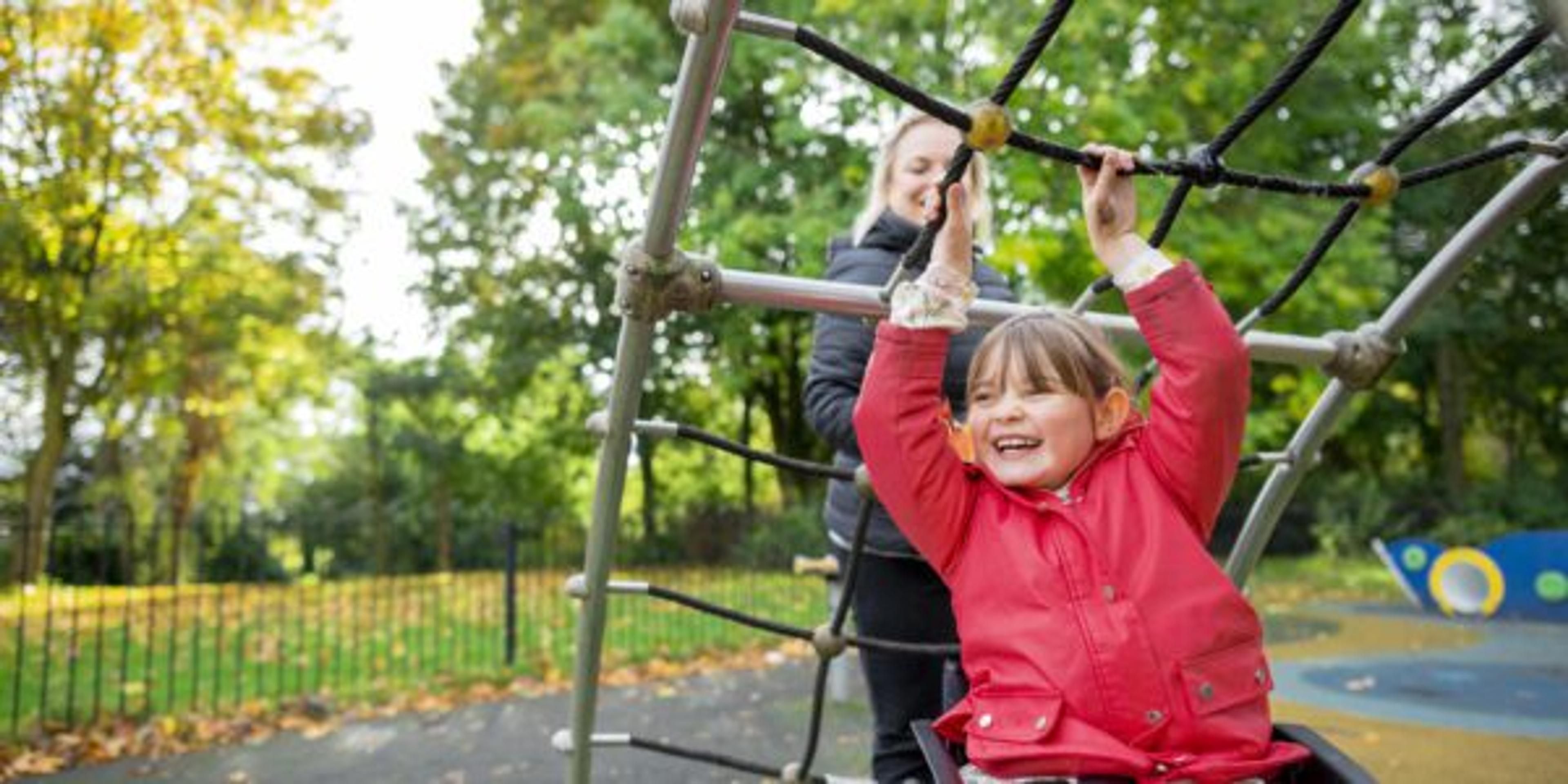Accessible and Inclusive Playgrounds Around the State
Shandra Martinez
| 3 min read

Imagine being a small child, very excited to go to a local playground, but once you get there you see that your wheelchair can’t get close enough to the fun equipment because there is no hard-surface path for your chair to take. Or maybe you’re a grade-school kid who has some balance issues, and you need a few handrails to make the playground safe for you. If you’re a child with sensory issues, you might need a quiet, enclosed space where you can feel calm. Playgrounds should be places where all children can relax, play and socialize, regardless of their physical or mental abilities. In recent years, there has been momentum at local and state levels across the United States to make more playgrounds both accessible and inclusive.
What are accessible and inclusive playgrounds? Playgrounds that are accessible and inclusive can take many different forms, depending on the equipment that anchors them, but they all share the same qualities when it comes to leveling the play experience for all children. If a playground is accessible, it means it follows the Americans with Disabilities Act (ADA) guidelines for new or renovated play areas. These include:
- Accessible routes to play areas
- Ground-level play equipment
- Ramps equipped with handrails
- Pathways to the equipment, with no obstructions
Inclusive playgrounds go beyond the ADA requirements. They may have sensory-friendly play equipment or quiet areas that feel like safe spaces for children on the autism spectrum or those who have sensory processing disorders. The rise in these accessible and inclusive play areas is being fueled not only by schools and cities, but by state agencies and nonprofits, too.
Chances are, you’ve got an accessible playground within reach in your hometown, or near your destination as you travel across the state for day trips or vacations. Here are some examples of these playgrounds across Michigan:
Macomb County: River Bends Park in Shelby Township. A barrier-free play area and inclusive playground was designed for all children, including those with special needs. A rubberized ground surface provides good accessibility for wheelchairs.
Ann Arbor: Gallup Park is billed as a universally-accessible play area. It has adaptive swings, a water/sand area and a sensory garden.
Livonia: Rotary Park is home to this city’s first universally-accessible playscape. It also sits next to a paved walking trail.
Kalamazoo: Children’s Nature Playscape at Bronson Park. Jumping, exploring, water features and activity areas all come together at this project which opened last summer and is slated to re-open for the season in May.
Wyoming: Frog Hollow is a universally-accessible play area that sits right next to the University of Michigan Health-West campus. There is a parking area and it’s also on a bus line.
Holland: Smallenburg Park’s accessible playground is near picnic areas, a community pool and a skate park.
Traverse City: This city’s beach and downtown marina area are wheelchair-accessible with boardwalks and ramps. And many beach areas have seasonally-accessible boardwalks. For an ADA-designed play area, check out Clancy Park in one of the city neighborhood areas.
Related:
Photo credit: Getty Images





